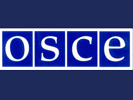ROUNDUP: Macedonian poll an "improvement," OSCE says
 Skopje - Presidential and local elections in Macedonia were an improvement over previous, violence-plagued polls, though some problems persist, the organization for Security and Cooperation in Europe (OSCE) monitoring mission said Monday.
Skopje - Presidential and local elections in Macedonia were an improvement over previous, violence-plagued polls, though some problems persist, the organization for Security and Cooperation in Europe (OSCE) monitoring mission said Monday.
The runner of the ruling VMRO-DPMNE, Georgi Ivanov, won by a landslide Sunday, after equally dominating the first-round vote two weeks earlier. He became the country's fourth president since it split from former Yugoslavia nearly two decades ago.
Unlike parliamentary polls last June, when gunfights and stabbings in campaign and on election day left two dead and several injured, the two rounds of voting passed without major incidents.
The European Union then warned Macedonia, a membership candidate, that it would not tolerate election violence. Skopje leaders hope that a spotless set of elections could unfreeze their progress to closer ties with EU.
"Presidential and municipal ... elections on Sunday met most OSCE and Council of Europe commitments and standards for democratic elections," Peter Eicher, the head of the OSCE election monitoring mission, told a press conference in Skopje.
The OSCE report said some of the issues they identified already in the first round, "including credible reports of intimidation," were again noticed on Sunday and were of "increased concern."
Nevertheless, "the voting process was significantly improved from the parliamentary elections in 2008," Jorgen Poulsen of the Parliamentary Assembly of the Council of Europe said.
The election monitoring branch of OSCE, ODIHR, advised Skopje authorities to "remedy the remaining issues outstanding in the election process."
In the presidential run-off, Ivanov won two-thirds of the ballots cast, in line with pre-election surveys. The only uncertainty was whether enough of the 1.8 million voters would turnout to meet the legal requirement of 40 per cent.
Amid apathy among the majority Slavic Macedonians and a boycott by the minority Albanians, who make up 25-30 per cent of the population, the only just surpassed the 40-per cent mark.
The boycott, called after none of Albanian leaders made it into the run-off, demonstrated the persistent ethnic partition of Macedonia.
The country was on the verge of a Kosovo-style civil war in 2001, when Albanians launched an insurgency to win more rights. The conflict was ended through an EU-brokered peace-and-reform deal giving the Albanian minority more rights.
After making enough progress in the years after the conflict to earn formal EU membership candidate status in 2005, Macedonia stalled due to flawed elections, lagging reforms and corruption.
But even with a positive report on the elections and even if Macedonia was to persuade much of the EU that it deserves to move closer to membership, Skopje is unlikely to move far while continuing a crippling diplomatic row with Athens.
Greece claims the name Macedonia for its own northern province and insists that its northern neighbour should change the name it had while it was a part of the federal Yugoslavia.
The conflict over the name already cost Macedonia an invitation to join NATO a year ago and is certain to block it en route to EU.
At the same time, many Slavic Macedonians fear that without quick accession to NATO and the EU, their country may disintegrate under the pressure of ethnic tensions, as Yugoslavia did. (dpa)